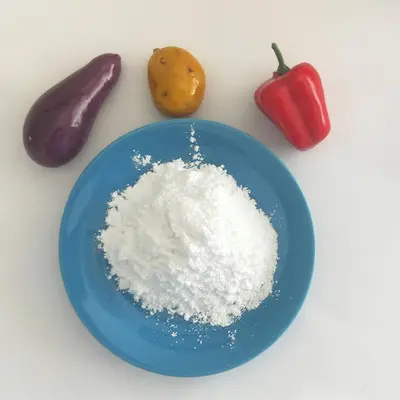In the field of food fortification, industrial grade magnesium sulphate plays a vital role in improving the nutritional value of various foods. Magnesium sulfate, also known as Epsom salt, is a naturally occurring mineral compound widely used as a food fortifier in the food industry. Its ability to fortify and enhance the nutritional content of food makes it an important ingredient in the food manufacturing process.
Magnesium sulfate is a rich source of magnesium, an essential mineral that plays a vital role in a variety of body functions, including muscle and nerve function, blood sugar regulation, and bone health. As a food fortifier, technical grade magnesium sulfate can be used to fortify a variety of foods, including cereals, baked goods, dairy products and beverages. It enhances the nutritional value of these products, making them a valuable ingredient in the food industry.
One of the main benefits of using technical grade magnesium sulfate as a food fortifier is its ability to address micronutrient deficiencies. Many people around the world suffer from micronutrient deficiencies, especially in developing countries where access to a diverse and nutritious diet is limited. By fortifying foods with magnesium sulfate, food manufacturers can help address these deficiencies and improve the overall nutritional quality of the food supply.
In addition to addressing micronutrient deficiencies, technical grade magnesium sulfate can help improve the texture and shelf life of foods. Its hygroscopic properties make it an effective anti-caking agent, preventing clumping and ensuring even distribution of other ingredients in food products. This not only enhances the sensory qualities of the food, but also extends its shelf life, reduces food waste and improves overall product quality.
In addition, technical grade magnesium sulfate is a cost-effective food fortification agent, making it an attractive option for food manufacturers looking to increase the nutritional value of their products without significantly increasing production costs. Its versatility and compatibility with a wide range of food products make it a practical option for fortification efforts, allowing food manufacturers to meet consumers’ nutritional needs without compromising taste or quality.
It is worth noting that industrial-grade magnesium sulfate used as a food fortifier undergoes strict quality control measures to ensure its safety and effectiveness. Food regulatory agencies set standards and guidelines for the use of magnesium sulfate in food, ensuring it meets necessary purity and safety standards. This ensures that consumers can safely consume fortified foods without any health concerns.
In short, industrial grade magnesium sulphate plays a vital role in the food industry as a food fortifier. Its ability to address micronutrient deficiencies, improve texture and shelf life, and is cost-effective makes it a valuable ingredient for food manufacturers. By fortifying foods with magnesium sulfate, the industry can contribute to improving the nutritional quality of the food supply, ultimately benefiting the health and well-being of consumers around the world.
Post time: Mar-29-2024

